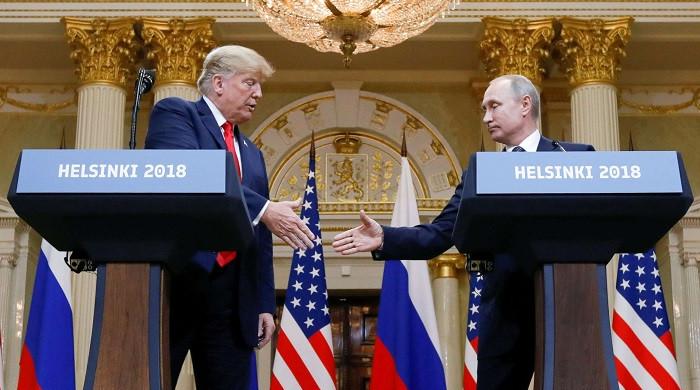- Preparations for the summit appear to be stalled after the postponement of the Rubio-Lavrov meeting.
- “I think the Russians wanted too much,” says a European diplomat.
- Neither side has publicly abandoned plans for the Budapest meeting.
A planned summit between US President Donald Trump and Russian President Vladimir Putin was put on hold on Tuesday as Moscow’s rejection of an immediate ceasefire in Ukraine overshadowed attempts at negotiations.
A senior White House official said Reuters“There are no plans for President Trump to meet with President Putin in the immediate future,” after Secretary of State Marco Rubio and Russian Foreign Minister Sergei Lavrov held a “productive call” but opted not to meet in person.
Trump had announced last week that he and Putin would meet soon in Hungary to try to end the war in Ukraine. But Putin has not been willing to consider concessions. Moscow has long demanded that Ukraine agree to give up more territory before any ceasefire.
When asked by reporters about the prospect of a summit, Trump said he did not want to have a “wasted meeting” but suggested there could be more developments and that “we will notify you in the next two days” about them.
Kirill Dmitriev, Putin’s investment envoy, said in a social media post that “preparations continue” for a summit.
Russia reiterated its long-standing terms for a peace deal in a private statement known as a “non-paper” that it sent to the United States last weekend, according to two U.S. officials and two people familiar with the situation.
The statement reaffirmed Russia’s demand for full control of the long-disputed eastern Donbas region, according to one official, effectively rejecting Trump’s call for a ceasefire that would begin with the freezing of front lines in their predominant locations.
Russia controls the entire Luhansk province and about 75% of neighboring Donetsk, which together form the Donbas region.
European leaders on Tuesday called on Washington to stand firm in demanding an immediate ceasefire in Ukraine, with the current battle lines as the basis for any future talks.
NATO said Secretary-General Mark Rutte traveled to Washington on Tuesday for talks with Trump that, according to two sources familiar with the matter, would take place on Wednesday.
A Western official, speaking on condition of anonymity, said Rutte planned to present to Trump European views on a ceasefire and any subsequent peace talks.
Trump, who last week spoke by phone with Putin and met with Ukrainian President Volodymyr Zelenskiy, was hoping for another high-profile session with the Russian leader after their August summit in Alaska failed to advance negotiations.
But the two sides postponed a preparatory meeting between Rubio and Lavrov that was expected to take place in Budapest on Thursday.
Lavrov and Rubio spoke by phone on Monday. Lavrov said the place and timing of the upcoming Trump-Putin summit were less important than the substance of the implementation of the understandings reached in Alaska.
The Kremlin said there was no clear date and that “serious preparation” was needed for a summit, which could take time.
“Listen, we have an understanding with the presidents, but we cannot postpone what has not been finalized,” said Kremlin spokesman Dmitry Peskov. “Neither President Trump nor President Putin gave exact dates.”
Asked if Moscow had an understanding on a possible date for the summit, Peskov said: “No, there is no understanding.”
“I think the Russians wanted too much”
Neither side has publicly abandoned plans for Trump to meet with Putin. Hungarian Foreign Minister Peter Szijjarto was in Washington on Tuesday and posted on Facebook: “We have serious days ahead.”
But two senior European diplomats said the postponement of the Rubio-Lavrov meeting was a sign that Americans would be reluctant to press ahead with a Trump-Putin summit unless Moscow gives in its demands.
“I guess the Russians wanted too much and it became clear to the Americans that there will be no deal with Trump in Budapest,” one said.
The Russians “have not changed their position at all and do not agree to ‘stop where they are,'” the second diplomat said. “And I guess Lavrov made the same speech and Rubio said, ‘See you later.'”
Europeans worried Trump won’t get concessions
Ukraine’s European allies are concerned that Trump could meet Putin a second time without extracting serious concessions from the Russian leader.
In a statement on Tuesday, the leaders of European powers, including Britain, France, Germany and the EU, said they “strongly support President Trump’s position that the fighting must stop immediately and that the current line of contact must be the starting point for negotiations.”
Trump has often changed his emphasis in public when talking about Ukraine. But last Friday, after meeting with Zelenskiy at the White House, he explicitly endorsed the position that a ceasefire should begin with forces in their current positions.
Reuters and other news organizations reported that Trump’s closed-door meeting with Zelenskiy was contentious, with the US president repeatedly using profanity and pressuring Zelenskiy to agree to some Russian demands.
But Zelenskiy has described the meeting as a success because it ended with Trump publicly endorsing a ceasefire along current lines, kyiv’s long-standing position.
European leaders will meet this week with Zelenskiy as a guest, first at an EU summit and then at a meeting of the “coalition of willing countries” discussing a security force to ensure a post-war settlement in Ukraine. Russia rejects such an international security force.
The choice of Budapest to host a Putin-Trump meeting is controversial within the EU, where Hungarian Prime Minister Viktor Orban is an outlier as one of the few leaders who maintains warm relations with Russia.
Any trip to Budapest would require Putin to cross the airspace of other EU countries. Poland said Tuesday it could force-land Putin’s plane and arrest him with an international warrant if it flies over its territory, but Bulgaria said Putin could use its airspace to reach the meeting.




